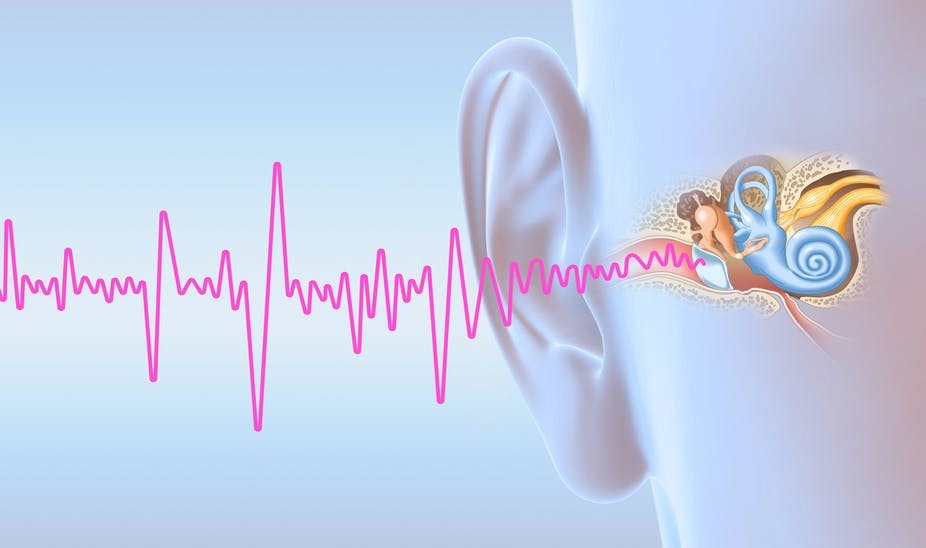What is Tinnitus?
There is no treatment for tinnitus itself, as the disorder is an indication of an underlying condition. Doctors will recommend a complete physical examination to determine the cause for the tinnitus. If this test does not reveal the issue, you may be sent to ear specialists and audiologists. These doctors will check the functioning of the nerves in the ear. An audio-gram may also be performed. Furthermore, MRI's and CT scans may also be needed to determine what is causing the tinnitus.
If the Tinnitus is caused due to an underlying health condition, doctors will treat that condition in order to reduce the effects. However, the same disorder may also be caused due to persistent levels of noise. In such cases, the patient must stay away from such noise in order to reduce the effects of Tinnitus.
Often, the tinnitus goes away on its own without needing any treatment, while at other times there is essentially no way to treat the condition completely. In such cases, the patient can seek out counseling groups so that they can better cope with the disorder. Certain drugs have also proven to have beneficial effects in keeping the condition in check.
How is the treatment done?
Since the tinnitus is caused due an underlying condition, doctors follow different treatment depending on the condition affecting the patient. For instance, if the tinnitus is caused due to excessive earwax formation, doctors will clear out the ear using a specialized tool called curette. This sucks out the dirt trapped inside. The same can also be performed using an ear flush with warm water.
In case of an ear infection causing the tinnitus, doctors will treat the infection with hydrocortisone laced ear drops. An antibiotic may also be prescribed in such a case.
The tinnitus may also be caused due to a dental disorder known as temporomandibular joint syndrome. If you are suffering from this disorder, you will be referred to an orthodontist.
In rare cases, surgery may also be required to treat the underlying condition causing tinnitus. A tumor or cyst could be behind the disorder and in such instances, surgery may be the only option.
Medication may also prove useful against the disorder. For some patients, treatment with antidepressants can be quite effective.
Several therapies have also been devised that can provide relief for people experiencing chronic tinnitus. These therapies may take a long time to prove useful, but are great ways of managing the discomfort.
Who is eligible for the treatment?
Anyone who faces persistent ringing in the ears is eligible for receiving the treatment for tinnitus. Some may also be experiencing hearing loss alongside the effects of the condition. However, prior to any of the treatments, patients must list out the medication he/she is currently on if any. Some tinnitus drugs may not be compatible with other medication.
Who is not eligible for the treatment?
Individuals who do not experience the ringing sensation in their ears are not eligible for receiving the tinnitus treatments. Even people who experience the symptoms from time to time but do not face the problems persistently need not seek out treatment. For these people, the ringing may go away automatically after a few days.
Are there any side effects?
While the other forms of treatment for tinnitus does not result in perceivable side effects, use of certain medications, namely the antidepressants may result in some side effects. These effects include dry mouth, heart ailments and blurry vision. Other stress management drugs prescribed for tinnitus may also cause nausea and drowsiness.
What are the post-treatment guidelines?
There are no such post-treatment guidelines for tinnitus. However, if the condition is caused due to loud noises, the patients are advised to stay away from such noise. Using a hearing aid at all times may also be necessary to keep the effects at bay. Depression, anxiety and stress must be managed as well to ensure that the symptoms of tinnitus are not magnified.
How long does it take to recover?
The recovery rate depends on the underlying condition, which caused the disorder. For instance, if the tinnitus was caused due to excessive ear wax, the symptoms may disappear as soon as the ears are cleared out. However, if the tinnitus is caused due to loud noises or tumors, it may take longer to be cured. In some cases, the condition cannot be cured at all and can only be controlled or managed using medication and other tools.
Are the results of the treatment permanent?
The treatment does not permanently cure tinnitus. Loud noises and other such disturbances to the ear may cause the condition to make a comeback.
What are the alternatives to the treatment?
People looking to find a solution outside of conventional medicine can try out cognitive therapy. This therapy teaches the patient to accept the ringing sound that is a result of the disorder. It also modifies the reaction to the tinnitus in the patient. Biofeedback methods can also be used to relieve the stress associated with tinnitus. This in turn helps to manage the symptoms of the condition.



